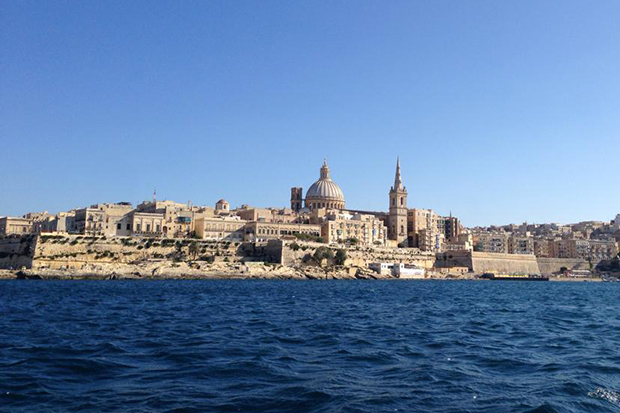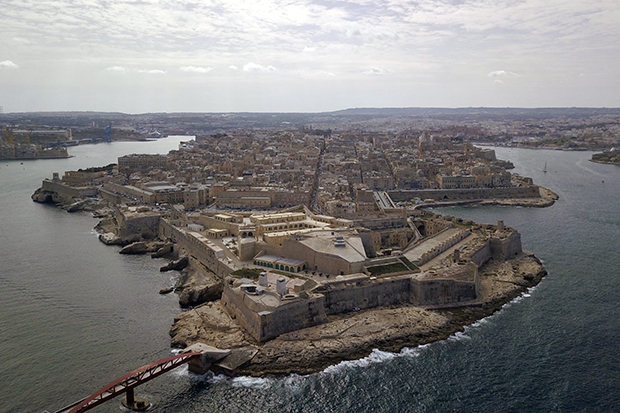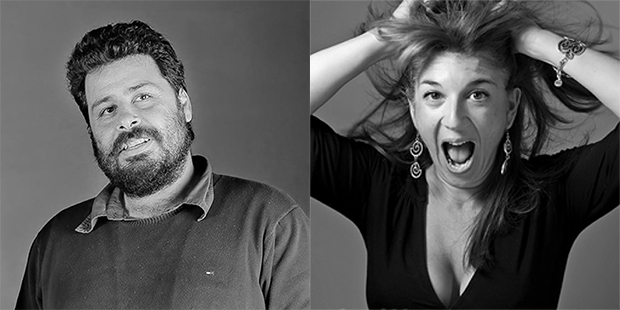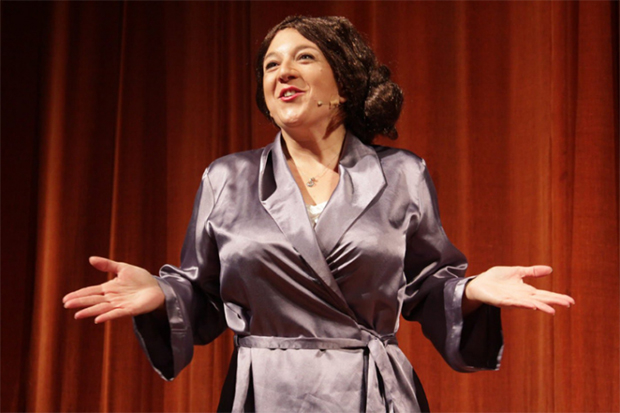The Comedy Knights Ask: Do You Need a License to Laugh in Malta?
In a country once ruled by humorless crusaders, modern-day knights defend the realm with laughter.

(© Zachary Stewart)
Malta is a small Mediterranean archipelago you may or may not know about. Ruled at various periods by Phoenicians, Romans, Arabs, Normans, Spanish, French, British, and (for a particularly noteworthy period) an order of crusader knights, it is now an independent republic (since 1974) and the smallest member state of the European Union. It is also where I spend the majority of my vacation days.
This isn't just because I adore the azure water and baroque architecture. My husband grew up on Gozo (the smaller of the two inhabited islands), and most of his family still lives there. Malta is a country steeped in tradition, but it is rapidly transforming, with a burgeoning immigrant population and a rate of economic growth that routinely eclipses all others in Europe. These contradictions result in a fair amount of friction, and observing how the Maltese navigate this friction and steer the destiny of their young republic has become an obsession of mine. I've come to love the country so much that this year I became a citizen, committing to a lifetime relationship with these wonderful islands.

(© Dion Hinchcliffe)
As a critic, I'm naturally curious about my new country's local theater. Adrian Buckle's Unifaun Theatre is undoubtedly the most daring company in Malta, having gone head-to-head with the government over its attempt to censor Anthony Neilson's play Stitching. I was wowed by Unifaun's Maltese-language version of Ovid's Metamorphoses (Il-Metamorfosi), which was staged in a pool of water inside of the historic Fort St. Elmo. A remnant of the British period, panto (the children's theater that can be enjoyed by drunk adults) is a beloved holiday tradition in Malta, with several companies staging competing productions. I would highly recommend FM Theatre's The Little Mermaid, which is set to play December 22-January 5, 2020, at Teatru Manoel, a baroque treasure that is one of the oldest working stages in Europe.
But the Maltese theater company that impresses me most is, somewhat surprisingly, a sketch comedy troupe: The Comedy Knights mount their seventh annual holiday show with 007: Licence to Laugh, set to play Teatru Salesjan December 26-January 12, 2020. This has been a tumultuous year in Malta, but the Comedy Knights have a way of finding humor in the darkest of times.

I attended last year's show, Lets Talk About Six, and was enveloped by the kind of laughter that can only be described as cathartic. The show presented sketches about greedy landlords, shifty politicians, goofy hoteliers, and shameless social climbers — all of the characters you might encounter in Malta in 2019. "We're that one time of year when our audience is allowed to vent," says producer-director Wesley Ellul.
Ellul first came up with the idea for Comedy Knights with actor Chris Dingli when the third member of their improv comedy trio ditched them for a role in (what else?) panto. Instead of forging ahead as a duo, they decided to create something even bigger: a scripted sketch comedy show starring some of the most talented comedians in Malta.
"Our first year was the wackiest," says Pia Zammit, one of the stars of Stitching, who has been with the Comedy Knights since the beginning. While a fair amount of wackiness remains, the Knights have refined their approach to offer some of the sharpest political and social satire in the country. All of the performers contribute ideas for sketches, and Dingli turns them into scripts in collaboration with comedian Steve Hili.
The result is a Maltese Saturday Night Live, chock-full of funny skits about politics and society. The shows are performed in English with a healthy smattering of Maltese (the mother tongue of the islands), and there's never a shortage of material. In fact, Ellul believes that the stories ripe for parody seem to increase around the holidays. He wryly observes, "For seven years, the government hasn't let us down." 2019 promises to be a particularly fruitful year.

(© Comedy Knights)
Malta has recently made international headlines for a shocking series of events. In brief: The investigative journalist Daphne Caruana Galizia, who exposed government corruption and penned scathing assessments of the ruling Labour Party, was assassinated by car bomb on October 16, 2017. Three contract killers were arrested the following month, but little progress was made in the investigation into who commissioned the murder until this past November, when casino magnate Yorgen Fenech was apprehended while trying to flee the island in his yacht.
Fenech has since been indicted on conspiracy-to-murder charges. In sworn testimony, Fenech has implicated Keith Schembri, chief of staff to Prime Minister Joseph Muscat. Schembri denies involvement in the murder, but he has resigned in the face of the allegations. Prime Minister Muscat has also promised to step down in January, but he's still in power, leading to allegations of a cover-up. This has resulted in regular street protests.
"Within 48 hours after Yorgen Fenech's arrest, we lost 45 minutes of material," Ellul admits. He expects that Dingli will make regular rewrites as the story continues to develop.
One of the ways the Comedy Knights prevent their show from becoming obsolete in one news cycle is by focusing on broader social commentary. "Like this whole phantom jobs thing," he offers, referring to the no-show job one of the conspirators enjoyed. "Instead of talking about the specific incident, we're putting our characters in a situation about getting phantom jobs." Such "phantom jobs" are a common form of patronage in Malta, and tend to proliferate around elections.
Zammit is quick to interject, "It was a government job and it was a reward for carrying out an assassination." Zammit has been on the front line of the protests, not just this past month, but for the past two years. She sees an overlap between her activism and her comedy. "As a people, we don't have the tradition of laughing at ourselves," she explains. "We take ourselves way too seriously. But when we learn to laugh at ourselves, we start to question our own behavior and how the corruption in our lives, like getting a phantom job, directly leads to the kind of big corruption the government is perpetrating."
Zammit has a blunt explanation for why so few people talk about the corruption they see in their everyday lives, much less satirize it: "You speak up and you lose work." It's as simple as that. The big men holding the purse strings (and they are almost all men) aren't afraid to leverage a permit or contract to enforce obedience, and they really don't like to be laughed at.
It would seem that with this annual show, the Comedy Knights are giving Maltese audiences a license to laugh at the big men, but there's another meaning behind the title: In response to anti-government street protests (especially the one held on December 13, Republic Day), pro-government media has criticized the protesters for demonstrating without an official permit, a line of attack that Zammit find ridiculous: "There is no need for a protest permit, because it is a public gathering." Both Zammit and Ellul see this as a remnant of a colonial culture that is used to giving deference to an occupying power, rather than expecting state power to give deference to the people.
"It's just in my lifetime that we started ruling ourselves," says Zammit. "We haven't worked it out." She likens the relationship many Maltese people have with politicians to that of supplicants praying to the gods, sacrificing freedom for the blessing of favor. In their determination to reveal these self-appointed gods as ridiculous, the Comedy Knights are playing an important role in the development of a free society. They're not giving Maltese audiences a license to laugh, but reminding them that they never needed one in the first place.








